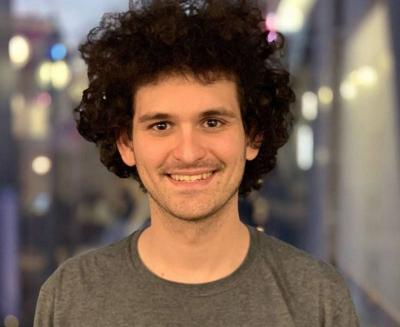Over the past year, the cryptocurrency market has become more popular than ever due to rising prices and significant interest from major institutions in investing. In this environment, a few traders have made considerable gains, including Sam Bankman-Fried, the 29-year-old founder and CEO of the cryptocurrency derivatives exchange "FTX." Bankman-Fried drew attention to the sector with the rise in prices of cryptocurrencies linked to him and his other company, "Alameda Research." Bloomberg News also reported that "FTX" handled enough volumes in April to make it one of the largest cryptocurrency exchanges. Bankman-Fried shared his views on everything from regulatory risks to the prospects for Bitcoin exchange-traded funds in an interview dated June 15, which we summarize below.
**Initial Public Offering (IPO)**
When "Coinbase" first offered its shares to the public, many cryptocurrency market observers described it as a pivotal moment, expecting other cryptocurrency asset companies to follow suit quickly. When asked whether his company was considering going public either through an initial public offering or direct listing (the path taken by Coinbase), Bankman-Fried said his company has no clear plans at the moment, but "it would be silly not to give it due diligence." He stated that "FTX" is profitable, so there is no urgent need to take that step right now, but discussions are likely to include deliberations about whether the legitimacy and interest resulting from the offering match the effort and associated challenges. At the same time, he continues to be contacted by sponsors of special purpose acquisition companies (SPACs), which are investment structures that gather funds from investors to buy another company. He said, "Honestly, there are not many reasonable and exciting targets for them in the cryptocurrency world, and we represent one of the few opportunities... If we wanted to go public via a SPAC, I don't think finding a SPAC would be a problem."
**Regulatory Matters**
With the cryptocurrency sector attracting more attention over the past year due to rising prices, it is also likely to undergo more scrutiny from regulators. Now, there are many indications that new regulatory approvals are on the way. Sam referred to the new chairman of the Securities and Exchange Commission (SEC), Gary Gensler, stating, "Part of it is a waiting game, and part of it is seeing what Gensler and, frankly, many other lawmakers conclude about these assets." Some areas might receive greater focus such as anti-money laundering and compliance with the "know your customer" rule. Sam mentioned, "Preventing money laundering has always been the biggest goal of regulators in most related financial sectors, and certainly, this topic has been prominent in discussions about cryptocurrencies for a while... There has actually been a lot of progress on this front." Gensler is also particularly interested in cryptocurrency trading markets. In May, he stated that exchanges "lack a regulatory framework," urging Congress to work on legislation to provide his agency with oversight authority over platforms.
**Prospects for Exchange-Traded Funds (ETFs)**
U.S. regulators have repeatedly opposed allowing cryptocurrencies to be included in an ETF, citing concerns over manipulation and criminal activity. While ETF advocates are optimistic that Gensler has a more open-minded approach than his predecessor, the SEC has already delayed making a decision on at least two applications and is expected to delay again by the next deadline on June 17. Nonetheless, there are at least nine applications to launch Bitcoin ETFs submitted to the SEC. While those applications sit with the agency, issuers are becoming more creative. "Invesco" launched two ETFs tracking companies linked to cryptocurrencies just days after "Volt Bitcoin Revolution" submitted an application to launch an ETF. Bankman-Fried, who previously worked as an international index fund trader at "Jane Street," said, "What you are seeing is not a flat rejection of the idea, but rather a viewpoint that says: 'Look, before we feel comfortable with the idea of creating Bitcoin ETFs, we first need to be assured of the Bitcoin markets... which means ensuring that there is little manipulation occurring, or if manipulation does occur in exchanges, it can be traced and the reality of what is happening can be reached.'"
**Mining and Energy Consumption**
Cryptocurrency miners use vast amounts of computational power and energy to verify transactions on the blockchain, a process that has come under intense scrutiny in recent weeks following criticism from the giant Elon Musk. Bankman-Fried finds this frustrating because, for instance, there could have been a productive conversation. He stated, "It is entirely unreasonable to criticize Bitcoin and turn it into a witch hunt simply to raise the issue that there is massive energy consumption occurring right now due to Bitcoin mining... At the very least, it should be analyzed." He added that, on the other hand, there are reasonable solutions to reduce energy consumption that do not require the death of cryptocurrencies. He said, "Essentially, there is significant energy use, but not excessively so due to Bitcoin and Ethereum mining at this point, which is limited to these two currencies." Soon, it will be limited only to Bitcoin due to Ethereum finding a long-sought solution for its more extensive usage on the blockchain. However, there are ways to combat the issue, including switching to green energy sources or resorting to carbon offsets, and solving the problem is neither free nor exorbitantly expensive but rather at a cost the sector can bear without harming itself excessively.




